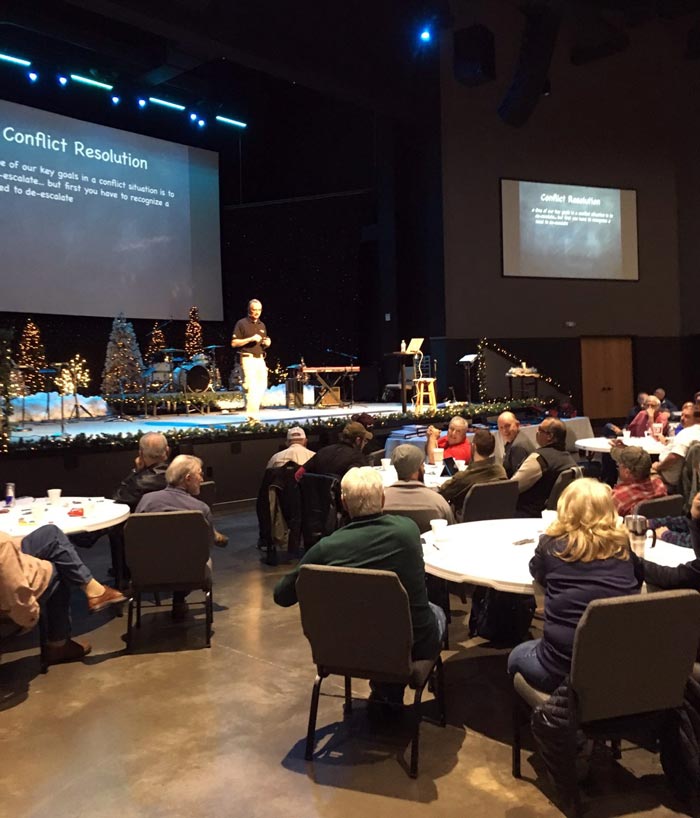While Sentry One has the ability to conduct consulting, site evaluations and training for any type of commercial business we choose to focus on the church arena because that is where our passion lies. Our efforts started many years ago as a ministry and only became a business in 2011 because the demand became so great… but the heart of this company is still rooted in that passion.
It is an often overlooked fact that there are always more people coming to your church that are deeply hurting than those that would show up with the intent to hurt someone else. With that in mind why would you not build your Safety Team to be the tip of the spear for that ministry outreach? This approach allows them to exercise their training every time the doors are opened and not just when a safety issue occurs. This is also why the screening for Safety Team members should be accomplished with ministry skills in mind.

The challenge when building any type of team is how to motivate them to be their best on a consistent basis. Training and practice is clearly a critical component to that equation but getting volunteers to be consistent with training and practice in addition to their families and other duties is always a struggle. This leads to the need to build a “culture of training” which in itself inspires each team member to have a strong drive to participate. In turn this drive to participate in the training also translates into a drive to actually show up and do the job each week. We do not just build a training program but we indeed develop a culture of training that allows the team to be self sustaining long after we have departed.
Crime can occur against a single church but more often it moves through a community. Even if it is a single event at a single church it still affects the body as a whole. Why then would we not reach out and share our training and intelligence gathering with the other churches in our community. What a great opportunity for churches even across denominational lines to build relationships. Our goal will always be to help facilitate that concept as we work with an individual church.